Frozen shoulders are just one of the many conditions we encounter. Therefore, if you’re searching for a physio for a frozen shoulder, you are in good hands at Falcon Health. Our blog will discuss the causes of a frozen shoulder and how a physio can help you overcome it.
What is a Frozen Shoulder?
A frozen shoulder is a condition whereby the shoulder joint becomes stiff and difficult to move. It often occurs following injury or overuse of the shoulder, but can also develop due to other conditions such as diabetes. The condition is also known as adhesive capsulitis or periarthritis of the shoulder. A frozen shoulder can last for long periods. Depending on the causes, it can last for 1.5-3 years, however, sometimes it can take more or less time to overcome it.
What are the symptoms of a Frozen Shoulder?
The symptoms of a frozen shoulder include pain and stiffness in the shoulder joint, which may make it difficult to carry out everyday activities such as brushing your hair or reaching for items on a shelf. The symptoms typically come on gradually over time, and may initially only affect one side of the body. However, in some cases, both shoulders may be affected.
What Causes a Frozen Shoulder?
Several factors can contribute to the development of a frozen shoulder, including:
-
Injury to the shoulder joint
-
Overuse of the shoulder joint
-
Conditions such as diabetes or thyroid disease
-
Immobility of the shoulder joint for long periods
Treatment for a Frozen Shoulder
The treatment for a frozen shoulder will vary depending on the underlying cause. In most cases, physiotherapy is recommended in order to help improve range of motion and reduce pain. Surgery may be required in some cases, however, this is typically only considered if other treatments have failed.
There are three key steps to creating a frozen shoulder, these tend to go as followed:
Pain Relief: Avoid movements that cause you pain and use paracetamol or ibuprofen to ease the symptoms of a frozen shoulder.
Stronger Pain and Swelling Relief: These are often stronger painkillers, sometimes injections. These are designed to reduce the swelling to provide freedom to your shoulder and enhance its range of movement.
Regain Movement: Once it is less painful, movement and exercise can help you to enhance your range of movement and strengthen the shoulder.
Physio for a Frozen Shoulder
Seeking a physio for a frozen shoulder is often recommended for those suffering. The physiotherapist will work with you to improve the range of motion in your shoulder and reduce pain. They may also provide you with exercises to do at home to help improve your condition.
A Physio for a frozen shoulder is incredibly effective as they can:
-
Assess your condition and develop a treatment plan that is specifically tailored to your needs
-
Use a variety of techniques to help reduce pain and improve range of motion
-
Provide you with exercises to do at home to help improve your condition
If you are suffering from a frozen shoulder, it is important to seek physiotherapy treatment as soon as possible. Early intervention can help to speed up the recovery process and prevent the condition from becoming worse. Furthermore, a physio for a frozen shoulder can provide you with exercises and advice to prevent it from recurring. As you become more knowledgeable about the condition, you can learn how to identify early symptoms as well as ways to reduce and prevent symptoms.
How long does a physiotherapy session usually last?
A typical physiotherapy session can last anywhere from 30 to 60 minutes.
Surgery for a Frozen Shoulder
Surgery is typically only considered if other treatments, such as physiotherapy, have failed to improve the condition.
The surgery for a frozen shoulder involves making small incisions in the shoulder joint and releasing the tissue that is causing the stiffness. This can help to improve the range of motion and reduce pain. In some cases, the surgeon may also need to remove damaged tissue or bone.
Recovery from surgery for a frozen shoulder can take several months. Physiotherapy will be required to help improve the range of motion and reduce pain. It is important to follow your physiotherapist’s instructions during recovery to avoid any further injury.
Prevention of a Frozen Shoulder
Whilst a physio for a frozen shoulder can help, it’s important to know how to prevent it from happening. There are several things you can do to prevent a frozen shoulder, including:
-
Avoiding injuries to the shoulder joint
-
Keeping the shoulder mobile and avoiding long periods of immobility
-
Exercising regularly to keep the shoulder strong and flexible
-
Wearing supportive clothing when participating in activities that put a strain on the shoulder joint
If you are at risk of developing a frozen shoulder, it is important to be aware of the early signs and symptoms. These include pain and stiffness in the shoulder joint. If you experience these symptoms, it is important to seek physiotherapy treatment as soon as possible to prevent the condition from worsening.
A physiotherapist for a frozen shoulder can provide you with exercises and advice to help prevent the condition from occurring. They can also teach you how to identify early symptoms so that you can seek treatment as soon as possible. Early intervention is key to preventing a frozen shoulder from becoming worse.
Contact Us
If you are seeking a physio for a frozen shoulder, look no further than Falcon Health. Our expert team are highly qualified in providing suitable treatment for your frozen shoulder and prescribing exercises to protect your shoulder.
If you would like to learn more or book a consultation with a physiotherapist for a frozen shoulder, contact our expert team today at info@falcon-health.com or 01444 257555.
Article: Phoenix Marketing






